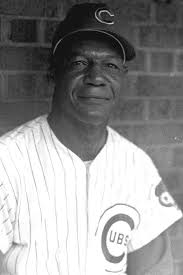
Introduction
Dale Hunter, a name synonymous with grit and determination in the world of hockey, has made significant contributions to the sport both as a player and a coach. His career, characterized by accolades, fierce competition, and leadership, makes him a prominent figure in Canadian hockey history. Understanding Hunter’s impact is essential for hockey fans and aspiring athletes alike, especially in the current context where hockey continues to evolve and expand its global reach.
Professional Playing Career
Dale Hunter was drafted by the Quebec Nordiques as the 41st overall pick in the 1980 NHL Entry Draft. Over his 17-year NHL career, which spanned from 1980 to 1999, Hunter played for the Nordiques, Washington Capitals, and the New York Islanders. He is well-remembered for his tenacity on the ice, accumulating over 1,000 points and 3,563 penalty minutes, ranking him among the top players for penalty minutes in NHL history. In addition to his individual statistics, he was an essential part of teams that made deep playoff runs and competed fiercely for the Stanley Cup.
Coaching Career
After retiring from professional play, Dale Hunter transitioned to coaching, where he took the helm as head coach of the London Knights in the Ontario Hockey League (OHL). Under his guidance, the Knights flourished, winning the Memorial Cup in 2005 and developing numerous players who advanced to the NHL. His coaching style emphasizes discipline and a strong work ethic, traits he embodied as a player. In 2011, he returned to the NHL as the head coach of the Washington Capitals, leading them to the playoffs in his first season. Hunter’s impact on young players and his coaching philosophy have significantly influenced the next generation of hockey talent.
Legacy and Impact
Dale Hunter’s legacy in hockey goes beyond his impressive statistics and coaching accolades. He is regarded as a player who exemplified the spirit of Canadian hockey – a game characterized by hard work, resilience, and teamwork. Currently, the debate around player conduct and sportsmanship continues to evolve, and Hunter’s experiences serve as lessons on balancing competitiveness and discipline. His commitment to mentoring young players and fostering their talents is an ongoing contribution to the sport, ensuring that hockey remains a respected and revered game in Canada and beyond.
Conclusion
As Dale Hunter continues to influence the world of hockey, both on and off the ice, his story serves as inspiration for aspiring athletes everywhere. His career illustrates the power of perseverance and dedication, reinforcing the importance of coaching and mentorship in sports. As hockey grows in popularity globally, figures like Hunter are crucial in reminding us of the sport’s rich heritage and the values it instills in its players.




